from Protoporia
Selected Store
Stock 3 pieces
Skroutz Buyers Protection
Set the delivery location to see products according to your choice.
 AustriaEnglish
AustriaEnglish BelgiumEnglish
BelgiumEnglish BulgariaБългарски
BulgariaБългарски CroatiaEnglish
CroatiaEnglish CyprusΕλληνικά
CyprusΕλληνικά CzechiaEnglish
CzechiaEnglish EstoniaEnglish
EstoniaEnglish FinlandEnglish
FinlandEnglish FranceEnglish
FranceEnglish GermanyDeutsch
GermanyDeutsch GreeceΕλληνικά
GreeceΕλληνικά HungaryEnglish
HungaryEnglish IrelandEnglish
IrelandEnglish ItalyEnglish
ItalyEnglish LatviaEnglish
LatviaEnglish LithuaniaEnglish
LithuaniaEnglish LuxembourgEnglish
LuxembourgEnglish MaltaEnglish
MaltaEnglish NetherlandsEnglish
NetherlandsEnglish PolandEnglish
PolandEnglish PortugalEnglish
PortugalEnglish RomaniaRomână
RomaniaRomână SlovakiaEnglish
SlovakiaEnglish SloveniaEnglish
SloveniaEnglish SpainEnglish
SpainEnglish SwedenEnglish
SwedenEnglish
© 20[0-9]{2} Skroutz SA All Rights and Lefts reserved. FAQ | Terms of use | Privacy Policy | Cookie Policy

from Protoporia
Selected Store
Stock 3 pieces
Skroutz Buyers Protection


Philosophy Books
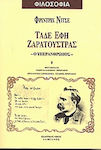


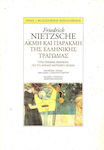
Classical Literature Books

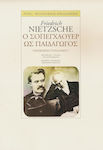
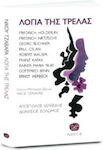


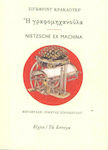



Prices are calculated for:Luxembourg, Other Payment Options
The way in which issues are grouped and addressed in "Human, All Too Human" corresponds to the assertive form of truth-seeking. The first volume includes, in addition to the prologue and the "Epilogue," nine chapters or "parts" that first discuss the "First and Last Things" and then the "History of Moral Sentiments." This is followed by sections dedicated to religious life, art, culture, family, and the state. This articulation seems to correspond to the traditional organization of systematic philosophy, starting with the "first and last things," thus addressing fundamental issues as they are posed and resolved, to the extent possible, within classical metaphysics. The subsequent parts also seem to fit the traditional schema of philosophical branches, considering the section on the history of moral sentiments as ethics, the section on religious life as philosophy of religion, and the rest as aesthetics, philosophy of the state, and finally anthropology ("Man in relation to himself"). However, a more thorough examination of the content will show that we are dealing here with something completely different from a closed system, and that Nietzsche rather wants to strip the dominant "truths" and ways of thinking from their systematic safeguards and expose to us the problematic, if not outdated, character of the principles of metaphysics, ethics, aesthetics, etc. It is therefore logical that, in the second volume, Nietzsche renounces the almost parodic succession of philosophical branches and disperses, instead of consolidating, the short essays and aphorisms that make up the section titled "Mixed Opinions and Maxims," which is no longer divided into parts, like the second volume, which contains a brief dialogue between the Wanderer and his Shadow.
Specifications are collected from official manufacturer websites. Please verify the specifications before proceeding with your final purchase. If you notice any problem you can report it here.